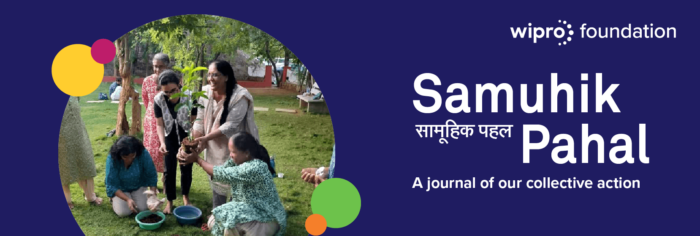Well-being at Vision Empower. Article in WIPRO Newsletter Samuhik Pahal January 2025
Meghna Chowdhury and Supriya Dey write on the theme of Well-being at Vision Empower in the January 2025 issue of Samuhik Pahal, WIPRO’s journal of collective action. At Vision Empower (VE), fostering both individual and collective well-being is at the heart of our organizational approach.
